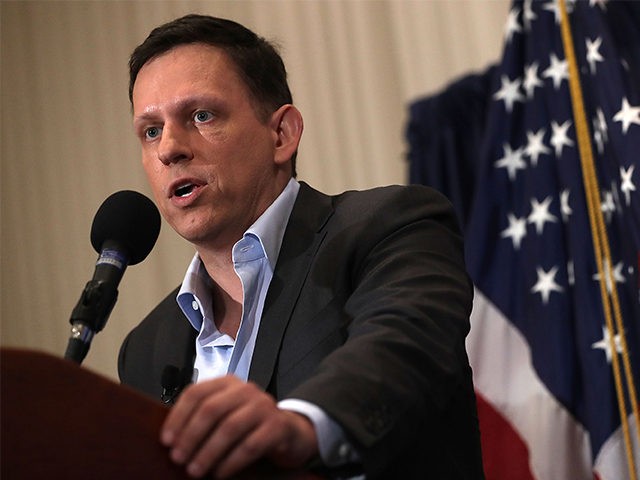Pinkerton: Tech Leaders Warn That China’s Spies Have ‘Thoroughly Infiltrated’ Silicon Valley with Google’s ‘Seemingly Treasonous’ Help
by James P. Pinkerton, Breitbart:

Cold War One
For a period of time, the overseas communist empire had been America’s geopolitical partner. Yet then a string of incidents suggested that maybe the partnership wasn’t so friendly after all; numerous spies were discovered in our midst, responsible for stealing some of America’s most precious strategic secrets. Moreover, a string of American witnesses came forward to offer firsthand accounts of espionage penetrations, and the dangers they posed. And so finally, it became clear to the American people, always reluctant to abandon the hope for peace and friendship, that, yes, the partnership was truly over.
Does this seem to describe the worsening relationship between the U.S. and China over the last two decades—as most Americans have gone from being hopeful that the Chinese economic miracle would lead to democratization, to being fearful of the strategic power of Big Panda?
In the year 2000, President Bill Clinton sat down with the Chinese leadership and agreed that the two countries, the U.S. and China, would enjoy a “constructive strategic partnership.” And the two presidents since Clinton, George W. Bush and Barack Obama, both mostly ignored China as they pursued other goals, such as democratizing Iraq or signing a nuclear deal with Iran. To put that another way, both Bush and Obama were mostly content to leave the warm relationship with China in place, not really noticing that China was taking our jobs, stealing our intellectual property, and growing to be more of a geopolitical menace.
This American naiveté about China has an interesting historical parallel. You see, seven decades ago, there was another warm relationship with a communist power that grew cold. That relationship, of course, was between the U.S. and the Soviet Union, back in the 1940s. Indeed, if we study the trajectory of a warm alliance that deteriorated into a cold war, we can learn some valuable lessons in strategic statecraft—specifically, how America can can keep its footing, even as the international terrain is shifting.
During World War Two, the U.S. and U.S.S.R. had been allies in the war against Germany, and then, at the tail end of the fighting, against Japan, too.
July 1945 marked the high-water mark of that alliance. That’s when the leaders of the United States, the Soviet Union, and Great Britain met in Potsdam, Germany to celebrate the complete defeat, two months earlier, of Hitler’s regime, and to plan for the final vanquishing of Japan, which came the following month. Amidst all those high hopes, many Americans were, yes, naive about the prospect of a constructive U.S.-Soviet relationship in the postwar era.
Yet soon, clear-eyed observers—most notably, Winston Churchill, who coined the phrase “iron curtain” in 1946—saw that the Western vision of a free world was incompatible with Stalinist totalitarianism. Thus the warmth of 1945 became chilly soon thereafter, heading toward the frigidity of the Cold War.
A critical moment in that freezing came in 1948, when the Soviets blockaded truck transport from West Germany to the urban island of West Berlin, that being an enclave of two million German civilians—as well as American, British, and French garrison troops—inside Soviet-controlled East Germany.
The Russian blockade was non-violent; the Red Army simply refused to allow supply trucks to travel the 100 miles from the West German border, through East Germany, to West Berlin. This blockade was technically an act of war, and the Americans could have regarded it as such. Yet in his larger wisdom, President Harry Truman chose to respond in a clever but non-violent manner; he ordered the Berlin Airlift, flying supplies right over the heads of Red Army blockaders—who didn’t dare shoot down the planes and really go to war.
Loading...



